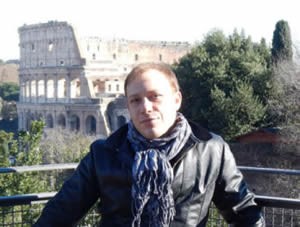3/10/2016

Over the past decades, few concepts have gained such prominence as resilience, the capacity of a system to deal with change and continue to develop. There has been an explosion of research into ways to promote or undermine the resilience of various systems, be it a landscape, a coastal area or a city. However, the multitude of suggested factors that enhance resilience has led to a somewhat dispersed and fragmented understanding of what is critical for building resilience and how an understanding of these factors can be applied.
This webinar convened authors of the publication with the same name to discuss seven principles that clarify how to apply resilience thinking and address the interactions among the underlying social and ecological systems. The assessment was funded by the Swedish Foundation for Strategic Environmental Research and conducted by experts from the Stockholm Resilience Center, Stockholm University and Arizona State University.
Moderator:

Michael Schoon is an assistant professor in Arizona State University’s School of Sustainability, focusing on policy and governance in sustainable systems. Michael is active in international research communities on resilience, robustness, and complex systems through the Resilience Alliance and the Beijer Institute of Ecological Economics. He serves on the board for IUCN’s Transboundary Conservation Specialist Group, which advises academics and practitioners on large-scale, cross-border conservation. Finally, he serves as co-Editor-in-Chief of the International Journal of the Commons, the leading journal in common-pool resource management.
Panelists:

Jennifer Hodbod is a Senior Sustainability Fellow in ASU’s Julie Ann Wrigley Global Institute of Sustainability. Her research focuses on environmentally and economically sustainable food systems that can equitably feed a growing global population whilst adapting to security threats such as climate change, changing preferences and economic shocks. She practices applied research in order to test and disseminate potential solutions in food systems. To integrate these components she utilizes environmental social science and political ecology methods within a novel and integrative research design for investigating human-environment interactions – resilience assessment. Taking this perspective allows her to investigate impacts across multiple scales, to highlight all impacts – intended or not – for all actors.

Jaccopo Baggio is an Assistant Professor of Environment & Society at Utah State University. His research focuses on analyzing and modeling social-ecological systems. In order to do this, his main research interests can be divided into two macro areas. One focuses on the conditions under which collective action succeeds in human societies, analyzing what drives collective action and how it is influenced by uncertainty. The other centers upon social-ecological networks, characterizing inter-dependencies between biodiversity, food, water, energy and decision making.
